Circular fashion: An interview with KOOL & KONSCIOUS
Culture — 26.06.20
Words by Desislava Todorova
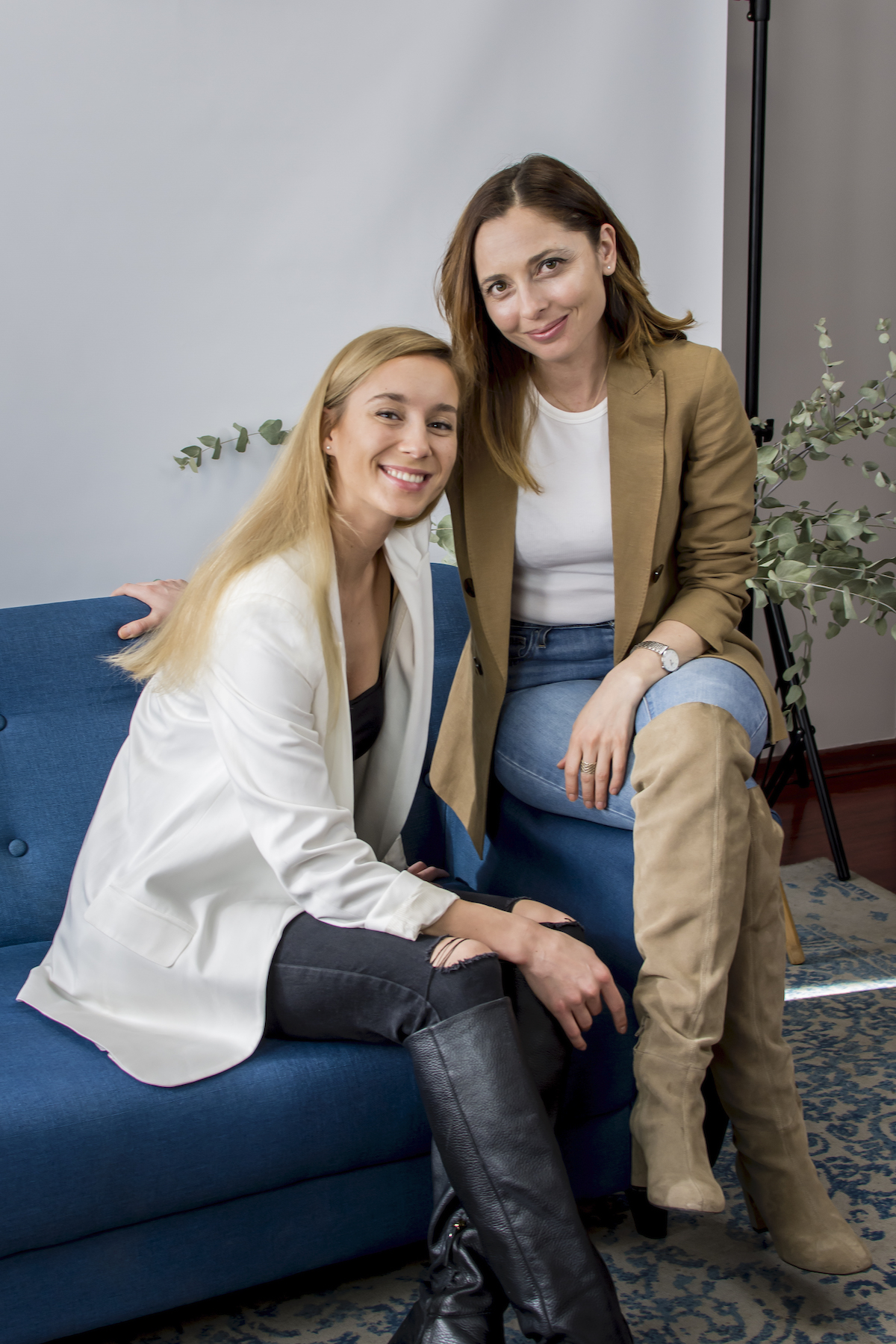 Founded by Bulgarian entrepreneurs Eva Vucheva and Boryana Uzunova, KOOL & KONSCIOUS is an all-female led circular fashion marketplace exploring the opportunities behind embedding an eco-consciousness in daily life without making it necessarily a lifestyle focus but ultimately achieving an innovative sustainable approach. Being firm believers in the ongoing change of consumer behaviour, defined their goal to focus on inclusivity instead of exclusivity, i.e. everyone can be part of a global change of habits without having to drastically switch their way of living.
Founded by Bulgarian entrepreneurs Eva Vucheva and Boryana Uzunova, KOOL & KONSCIOUS is an all-female led circular fashion marketplace exploring the opportunities behind embedding an eco-consciousness in daily life without making it necessarily a lifestyle focus but ultimately achieving an innovative sustainable approach. Being firm believers in the ongoing change of consumer behaviour, defined their goal to focus on inclusivity instead of exclusivity, i.e. everyone can be part of a global change of habits without having to drastically switch their way of living.
Teeth Editor Desislava Todorova spoke to them to find out more about why this is a groundbreaking idea and how it could change our perspective on the future of consumerism.
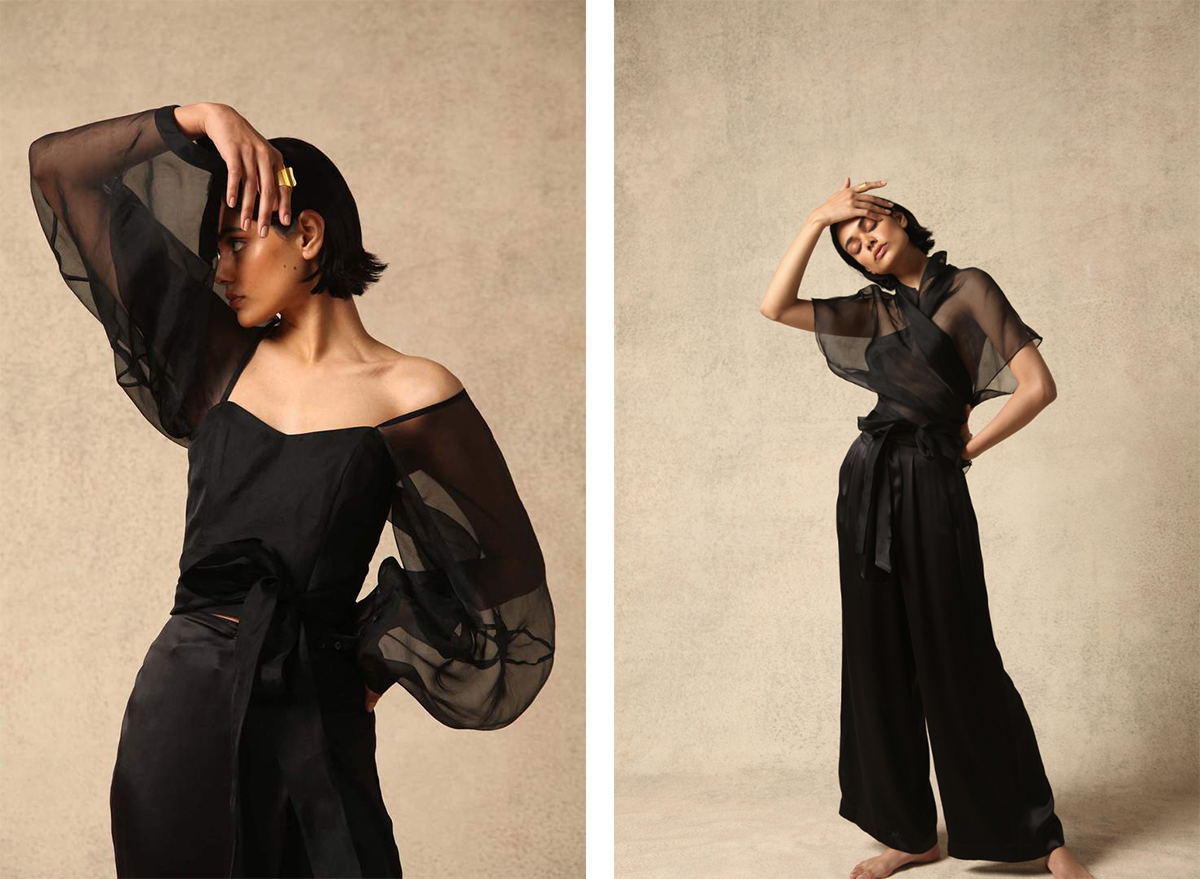 Tell us about your work? Why KOOL AND KONSCIOUS (could you please share more information about your brand’s ethics and ID)? What makes your message so tangible and urgent for retailers to adopt right now?
Tell us about your work? Why KOOL AND KONSCIOUS (could you please share more information about your brand’s ethics and ID)? What makes your message so tangible and urgent for retailers to adopt right now?
Eva: For us, Kool and Konscious was destiny calling. Boriana and I come from relatively different backgrounds and have a 15 year age difference. My journey in the fashion industry began in 2010 when I joined the founding team of one of Europe’s leading fashion marketplaces at that time. At first, we were mimicking Gilt (in the USA). It was a great and rewarding ride, but also quite a sobering awakening. It was during that time that fast fashion exploded and inevitably changed the industry. We would see 8 instead of 2-3 annual collections, constant urge for more sales and heavier discounts. The full-price shelflife of an item dropped from 2.5 months to under 30 days. Personally, it felt like I had “too much ice cream”. It was not healthy and it didn’t feel right. I left the company in 2015. I started another venture and began taking interest in circular fashion and shared economy businesses.
Bory: I, on the other hand, had a completely different experience. Being the minimalist that I am, during my grad school years, I started a tech company working on perfect-fit on-demand production technology, which me and my team were able to exit on patent level. I lived in Asia for over 10 years, where the impact of overproduction, excessive waste and abuse of resources is probably most visible. My drive was to essentially find a way to produce only what is needed, with no excess and waste. We first developed a morphing mannequin which would change to fit into the shape of any person. But we thought it couldn’t be of a big enough scale and we focused to expand the technology into a morphing pattern maker. This would allow every producer to have the right pattern cut based on each individual customer size. I think we were a little bit ahead of our time, as the infrastructure (for example commercially available scanners for shoppers) was still not there. However, I am a firm believer that this is the future of the industry. After we sold the technology I kicked off a sustainable fashion marketplace project in Hong Kong which is now Kool And Konscious.
Eva: The two of us met purely by accident in 2019. Bory was looking for someone to help bring the project to Europe. And I was looking for a project that can actually deliver change. Fast forward to late 2019 when we launched in the UK.
Bory: With Kool And Konscious, we aim to build the first circular fashion platform that empowers consumers, sustainable brands and supply chain players, to change the habits, the norms and the rules of the fashion game.
Eva: We believe a change in consumer behaviour can only happen through free choice. So our ultimate goal is to empower choice. To make it easy for consumers to find and prefer sustainable fashion. Under www.koolandkonscious.com we have launched a circular fashion marketplace. It features over 70 sustainable brands, which save up to 75% of the environmental impact. But more importantly, the mix of brands offers high-quality products at a price range that makes sense. In addition, we offer ways for after-life management of the things our customers no longer need.
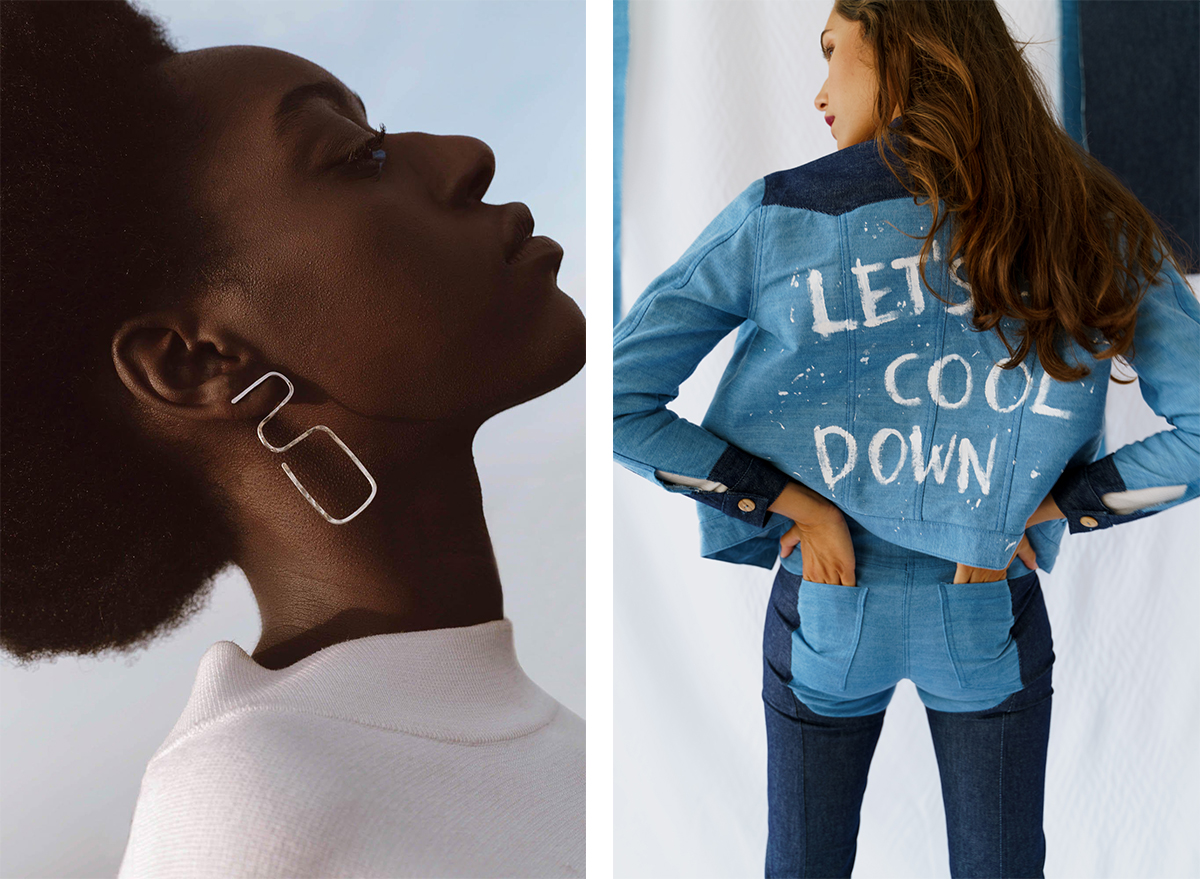
How do you operate? Tell us a little bit about your method of working, your team?
Eva: We are still a small team, just shy of 10 people. We love working like this as we tend to be extremely quick when it comes to execution and making decisions and sometimes a large structure can slow you down. We purposefully try to keep the team small, which means we need to compensate with automation. And we really pride ourselves with what we have achieved.
We have 3 main workflows: sourcing, tech and growth. Our sourcing team is probably the one under most immense pressure as they take care of scouting for brands, but they also do the preliminary vetting and onboarding of any newcomers.
Bory: On the tech side we have taken the following approach: everything which is not our core tech, we use off-the-shelf technology. It allows us to move extremely quick at the fraction of the cost. And it also allows us to invest time and money in the technology that actually makes a difference. For example, our Impact score is a proprietary technology. It is an algorithm that calculates the water and CO2 savings of each sustainable item we sell, based on its composition, weight and production process. It took us a while to build the model and conduct the research, but this is a piece of tech that can actually move the needle in consumer demand and understanding of the issue. We feel this technology has potential beyond our own platform at a much bigger scale.
Eva: On the growth side – we do have a very solid team who also understands the need for a genuine conversation with our customers. At this point in time where greenwashing is a real issue, we try to address the elephant in the room. We are very transparent with the process – all the pros but also all the negatives to what we currently do.
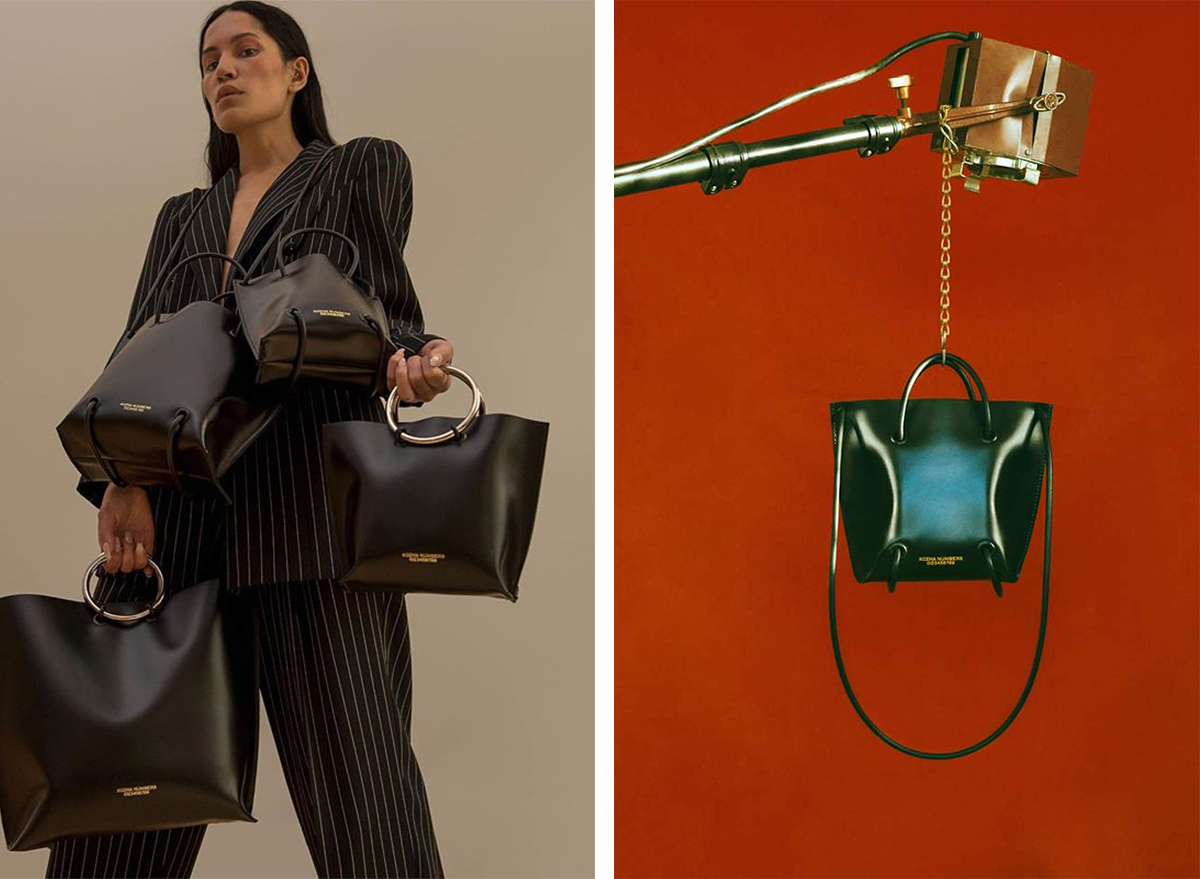 What have you been up to? What is your latest activation/partnership and what is your objective with it?
What have you been up to? What is your latest activation/partnership and what is your objective with it?
Eva: I want to say it’s been business as usual, but it has not. The COVID-19 outbreak hit us strong. We had just launched in January in the UK and it nearly destroyed our business. But it also gave us time to reflect and refocus. We finally had time to develop our Impact Score technology and provide information for the environmental footprint of every item on the marketplace. We had to roll with the punches and create a positive spin out of a bad situation. We also launched the “Circulate” functionality of our platform. We are currently collaborating with the social venture Thrift+ in order to provide our customers with the opportunity to give their unwanted or unused fashion items a second life and make some money in the meantime. It has proven to be a great initiative during Quarantine.
Bory: And last but certainly not least, we are just about to launch our latest project – our first fully circular product. We wanted to lead the way and be an example for all our partnering brands on how to produce with circularity in mind. Kool And Konscious is releasing a very limited edition (only 100pcs) of the first fully circular swimsuit. It wares the tag “Not A Virgin”, as the material it’s made of comes from recycled fishermen nets. All the elastics are made from natural biodegradable caoutchouc. What also makes it unique is that the swimsuit itself it carries a dedicated tag. So when the customer decides that the product no longer serves them and disards of it, no matter where it ends up next, it can be traced back and its materials can be recycled to start a new life.
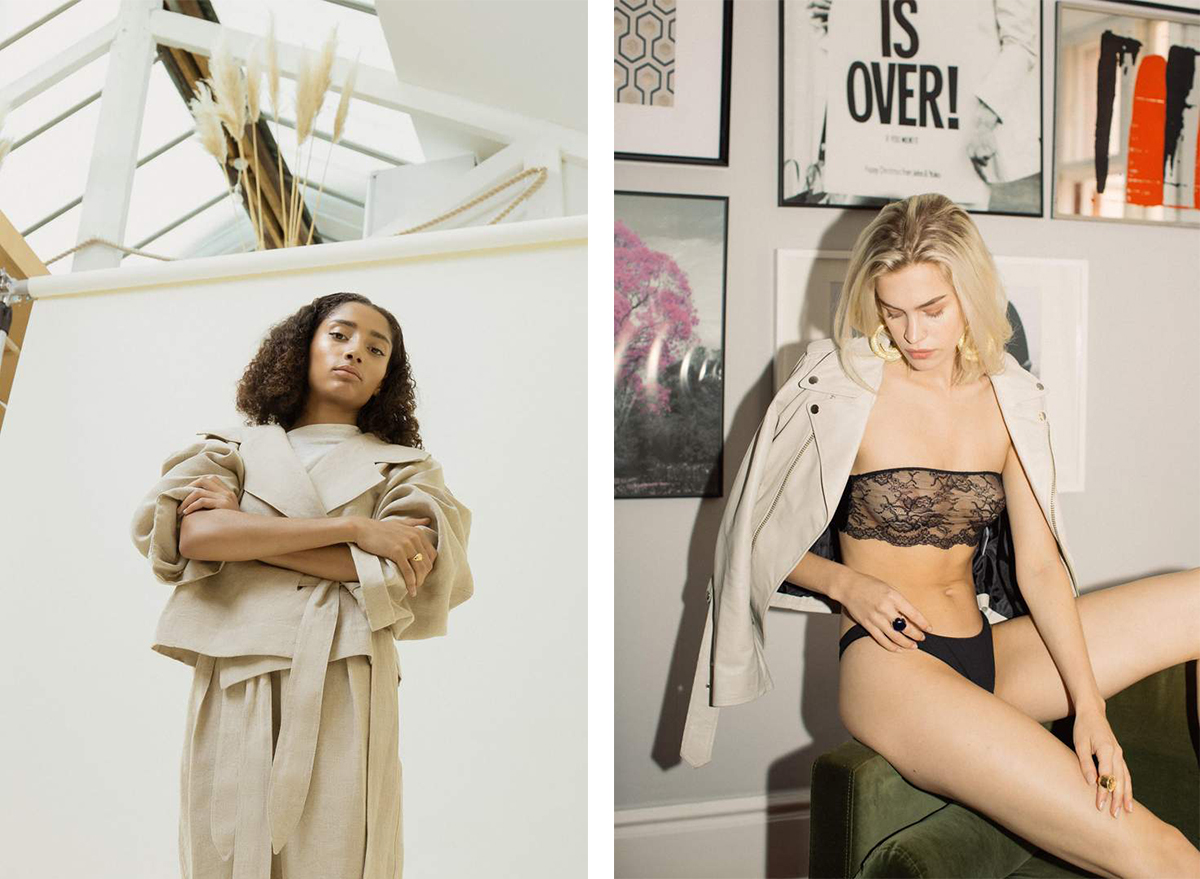
In view of the fact that during the global lockdown more and more people have become self-conscious of their environmental impact (these months were a healing period for nature with carbon emissions levels being drastically reduced, for instance). How do you approach this and what is your plan moving forward?
Eva: As I mentioned, the current crisis hit is quite hard. However, we took a quick and ultimately the right decision to not push for sales. Instead, we focused on customers’ wellbeing and took care of our brands.
Bory: We reduced our commission towards our partnering brands. And at the same time encouraged our end customers to use our Thirft+ integration and get rid of the things they no longer needed. This initiative essentially allows people to request a donation bag. They fill it up with clothing that no longer serves them and sends it to Thrift+. The entire process is very simple and also free – the bag gets delivered to your doorstep and then you just need to drop it at some of the drop-off locations. Then Thrift+ evaluates and puts the items for sale. Customers can decide whether to donate all the profits to a charity of their choice or keep some of the profits for themselves. The profits are provided as credits to shop at Thirft+, Farfetch, John Lewis and Kool And Konscious. We currently have about 50 bags donated per day.
This current crisis had an immense effect on the fashion industry which was very fortunate for us. For a while, we wanted to develop an ecosystem of supply chain players that are interconnected through a piece of technology and provide a fully transparent production path. But only a handful of producers through there was a point in that.
Eva: Once the crisis hit the big retailers all behaved very shortsightedly in the sense that they decided to not pay their suppliers until further notice. Due to the fact that the entire industry is very fragmented and untransparent, so many producers were left hanging as they were not even a part of the official supply chain.
That opened a huge opportunity for us and allowed us to start working on the Ecosystem. That is a huge step – not for us necessarily but for the industry as a whole. It just changes the perception and understanding of how this industry ought to be built.
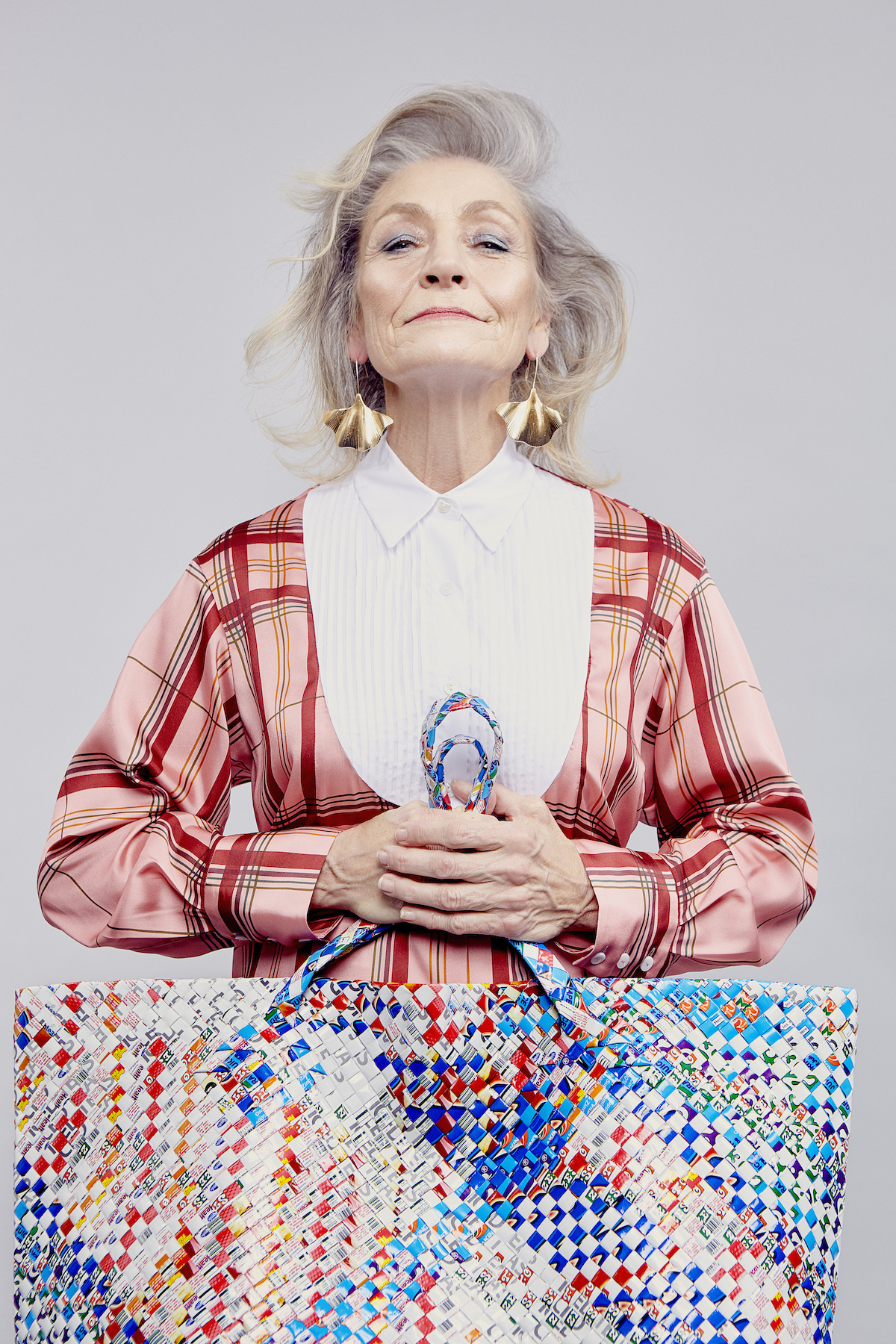 What’s next – what do you hope to achieve moving forward?
What’s next – what do you hope to achieve moving forward?
Eva: We take a slightly different approach to sustainability. Our understanding is that changing consumers’ habits is rather a risky and lengthy endeavour. We all know that smoking is bad and yet it took us half a century and a lot of government regulations to take it down a notch.
So our focus is not to change the habit, but to change the inception – the way products are imagined, designed and built. If we are able to design and produce with materials that consume 95% less water (for example hemp) or we colour garments with waterless technology, or we make clothing that is compostable, then all the consumption in the world would not be a problem.
Bory: That is why our next project is to expand our Impact Score and connect it to an Ecosystem of supply chain players. In this way, we can add a new layer of transparency for end-consumers but also allow producers to be visible and to scale more sustainably.